Abstract
OBJECTIVE: To ascertain how much family medicine residents know about medical-legal issues and what their attitudes toward medical-legal training are. DESIGN: Survey using multiple-choice questions to assess knowledge of typical legal scenarios and attitudes to training. Responses to questions were assessed using a Likert scale. SETTING: University of Ottawa's Family Medicine Program, including the Northeastern Ontario Family Medicine Program and the Melrose and Elizabeth Bruyere Family Medicine Centres. PARTICIPANTS: Forty-five family medicine residents in the University of Ottawa's Family Medicine Program. MAIN OUTCOME MEASURES: Demographic information and answers to questions assessing respondents' knowledge of and attitudes toward medical-legal issues. RESULTS: Mean score for correct responses was 8.6 out of 16 possible correct responses. Resident's knowledge about certain issues was excellent, such as knowing that comments can be constructed as sexual abuse and that they should report patients whose medical conditions make it dangerous for them to operate motor vehicles. On other issues, such as how to treat incompetent individuals and how to treat minors when parents refuse consent for treatment, residents' knowledge seemed poor. Although residents thought knowledge of medical-legal issues was important for providing good-quality care to patients and avoiding litigation, they felt inadequately trained in and uncomfortable about dealing with these issues. CONCLUSIONS: Residents are somewhat confused about medical-legal issues. They seem very interested in learning medical-legal principles. These findings should encourage educators to provide opportunity for residents to gain knowledge in these areas.
Full text
PDF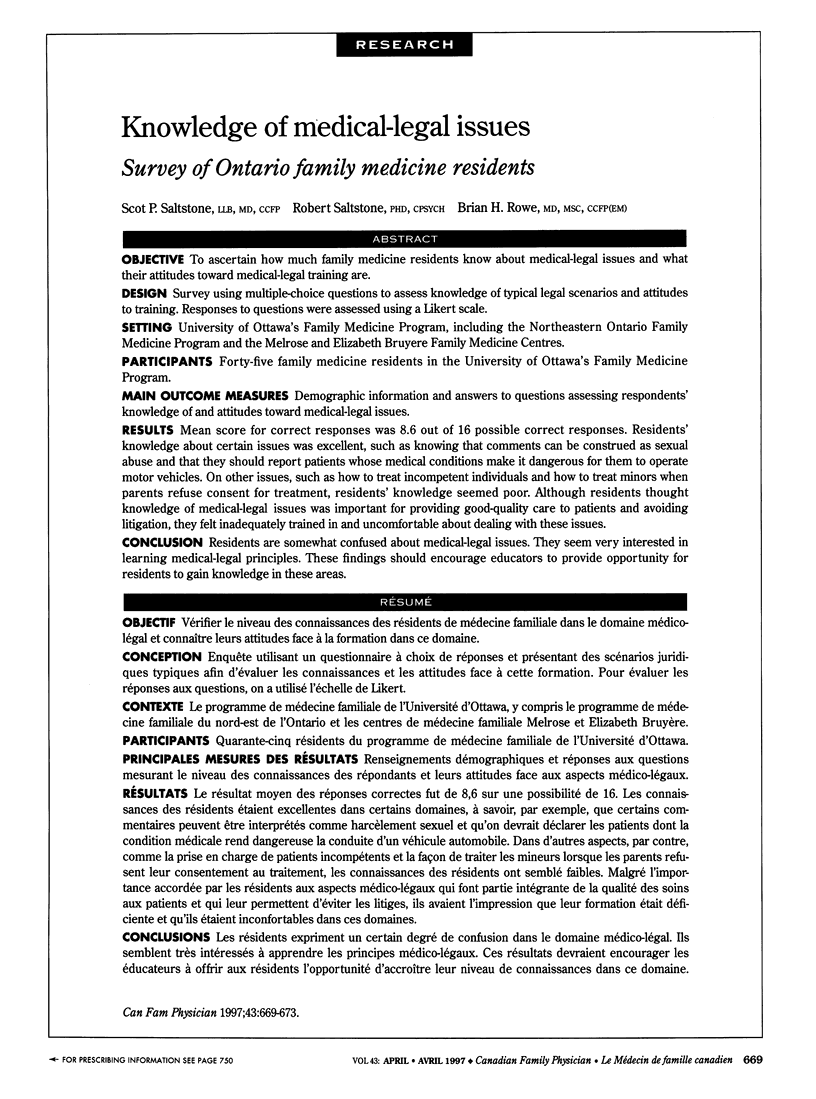
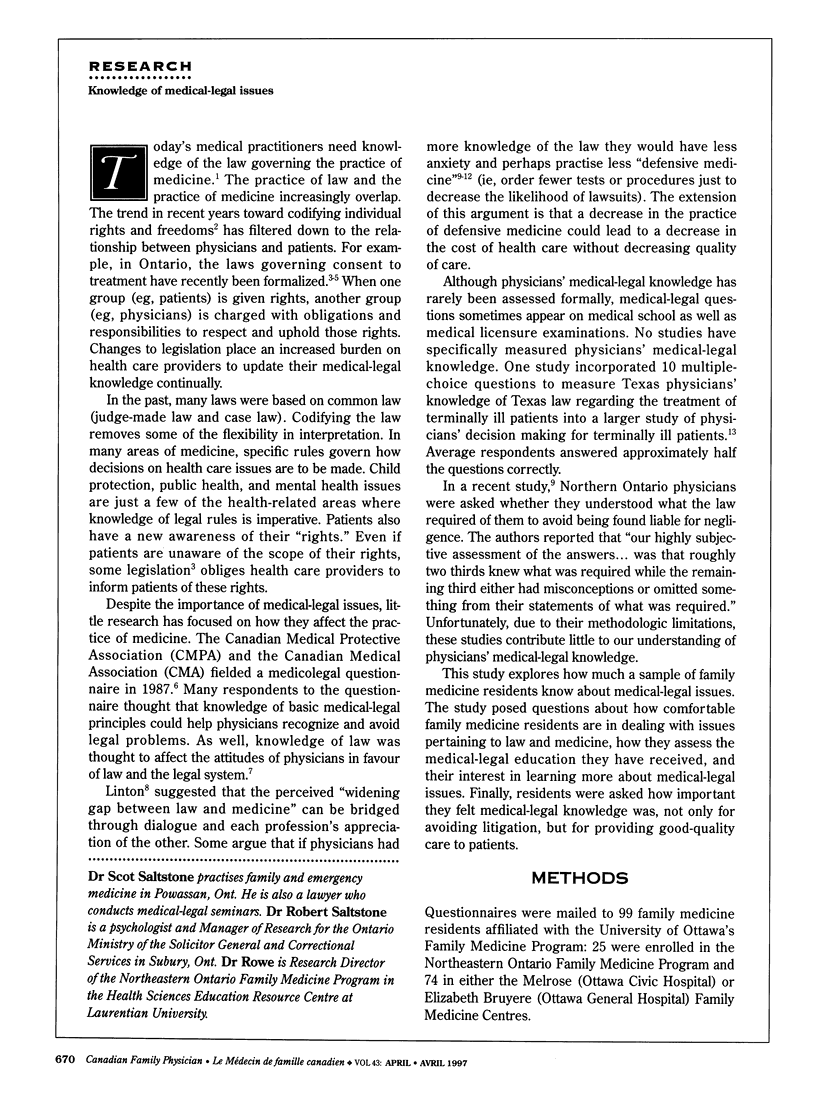
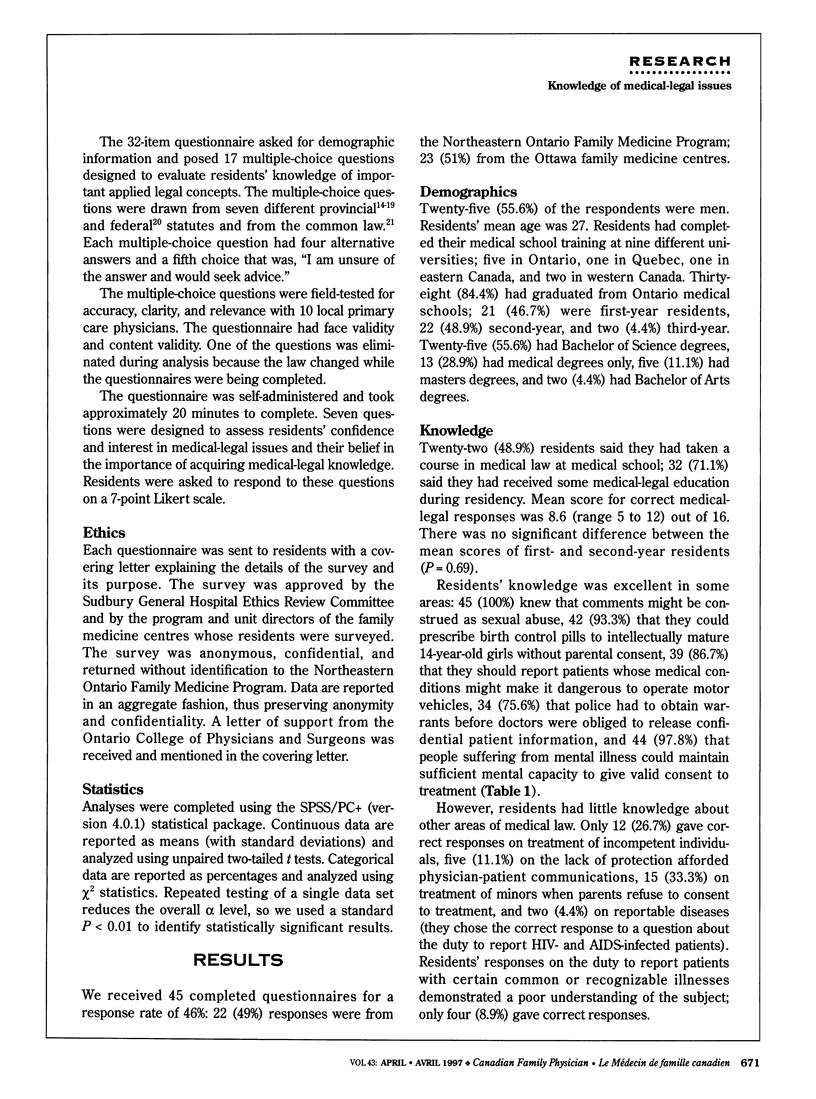
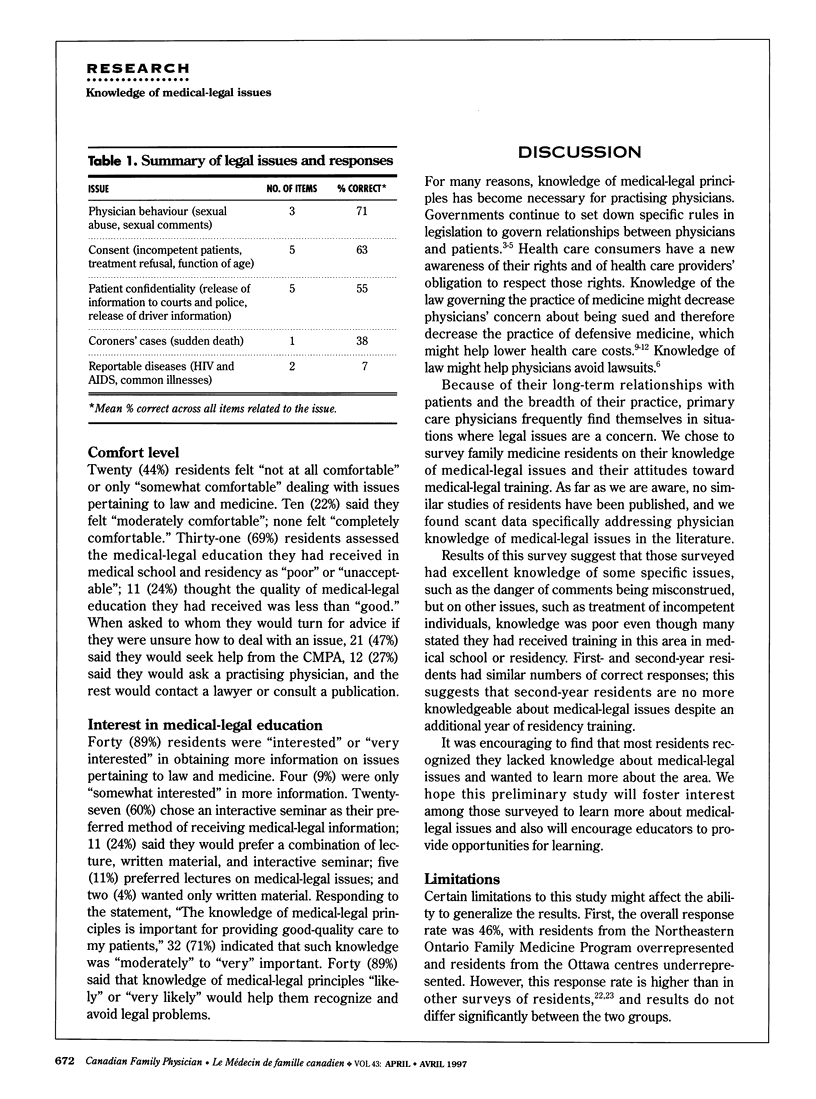
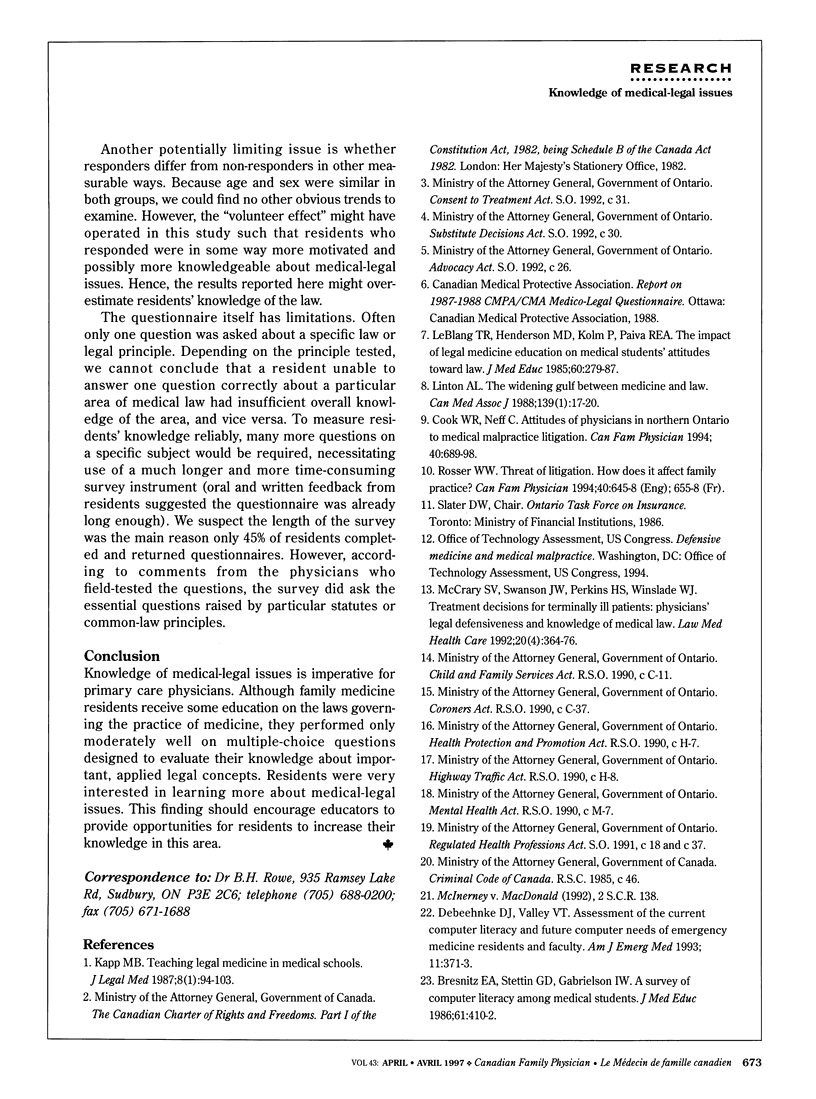
Selected References
These references are in PubMed. This may not be the complete list of references from this article.
- Bresnitz E. A., Stettin G. D., Gabrielson I. W. A survey of computer literacy among medical students. J Med Educ. 1986 May;61(5):410–412. doi: 10.1097/00001888-198605000-00011. [DOI] [PubMed] [Google Scholar]
- Cook W. R., Neff C. Attitudes of physicians in northern Ontario to medical malpractice litigation. Can Fam Physician. 1994 Apr;40:689–698. [PMC free article] [PubMed] [Google Scholar]
- Debehnke D. J., Valley V. T. Assessment of the current computer literacy and future computer needs of emergency medicine residents and faculty. Am J Emerg Med. 1993 Jul;11(4):371–373. doi: 10.1016/0735-6757(93)90170-g. [DOI] [PubMed] [Google Scholar]
- Kapp M. B. Teaching legal medicine in medical schools. J Leg Med. 1987 Mar;8(1):94–103. doi: 10.1080/01947648709513490. [DOI] [PubMed] [Google Scholar]
- LeBlang T. R., Henderson D., Kolm P., Paiva R. E. The impact of legal medicine education on medical students' attitudes toward law. J Med Educ. 1985 Apr;60(4):279–287. doi: 10.1097/00001888-198504000-00001. [DOI] [PubMed] [Google Scholar]
- Linton A. L. The widening gulf between medicine and the law. CMAJ. 1988 Jul 1;139(1):17–20. [PMC free article] [PubMed] [Google Scholar]
- McCrary S. Van, Swanson Jeffrey W., Perkins Henry S., Winslade William J. Treatment decisions for terminally ill patients: physicians' legal defensiveness and knowledge of medical law. Law Med Health Care. 1992 Winter;20(4):364–376. doi: 10.1111/j.1748-720x.1992.tb01217.x. [DOI] [PubMed] [Google Scholar]
- Rosser W. W. Threat of litigation. How does it affect family practice? Can Fam Physician. 1994 Apr;40:645-8, 655-8. [PMC free article] [PubMed] [Google Scholar]


